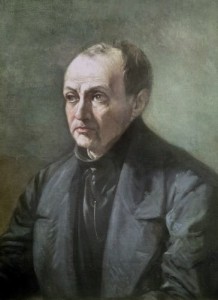In the early 1800s, father of sociology August Comte looked with envy upon physical sciences and hoped to develop a science of society. The result was centuries of disappointment and even surrender. The field of sociology is working on important problems, but it is not the science that Comte anticipated.
In the mid-20th century, biochemist and science fiction author Isaac Asimov wrote a series of science fiction stories about psychohistory, a mathematical science of society. These stories tantalised several generations of enthusiasts, but provided few clues on how to develop such a science, beyond it needing to be statistical.
Times have finally changed, and it is now an exciting time for the development of a science of history (and society). Recent advances in computing power have made a wide range of tools available that allow today’s pioneers to make a serious effort to develop a science of history. High level programming languages, machine learning and big data tools make processing and analysing data much more efficiency and cost-effective. The internet and the abundance of historical works now placed online make getting that data easier. Projects such as Seshat, Wikidata and Millennia Data will organise and warehouse that data and make it easily accessible to the world and allow for more critical validation.
Further, there is an increased willingness of physical and natural scientists to lead the development of such a science.These scientists are bringing paradigms and tools from biology, physics and computer science that are becoming the heart of this new science such as complex systems, ecology and thermodynamics. The spirit of enthusiasm so prevalent in the science and technology communities is bringing a new energy to the field of history.
Peter Turchin et al. are developing the field of Cliodynamics and building up a significant body of research and scholarship. I have been bringing physical approach to model the emergence and fall of dynasties and to generalise this science to apply to any society, be it on Earth or on distant exoplanets. David Christian’s Big History also connects human history with cosmology. Richard Carrier has developed techniques to utilise Baye’s Theorem to help validate historical data.
Yet this field is really at its beginning. There are tremendous opportunities for newcomers to develop and apply this science to help sustain human society and improve quality of life. I encourage readers to get involved and bring their own energy and ideas to the field. To the extent the development of this science becomes successful, it will be one of the greatest advances of humanity.
